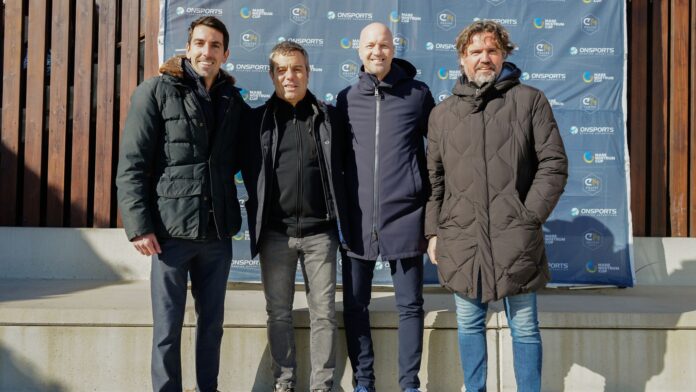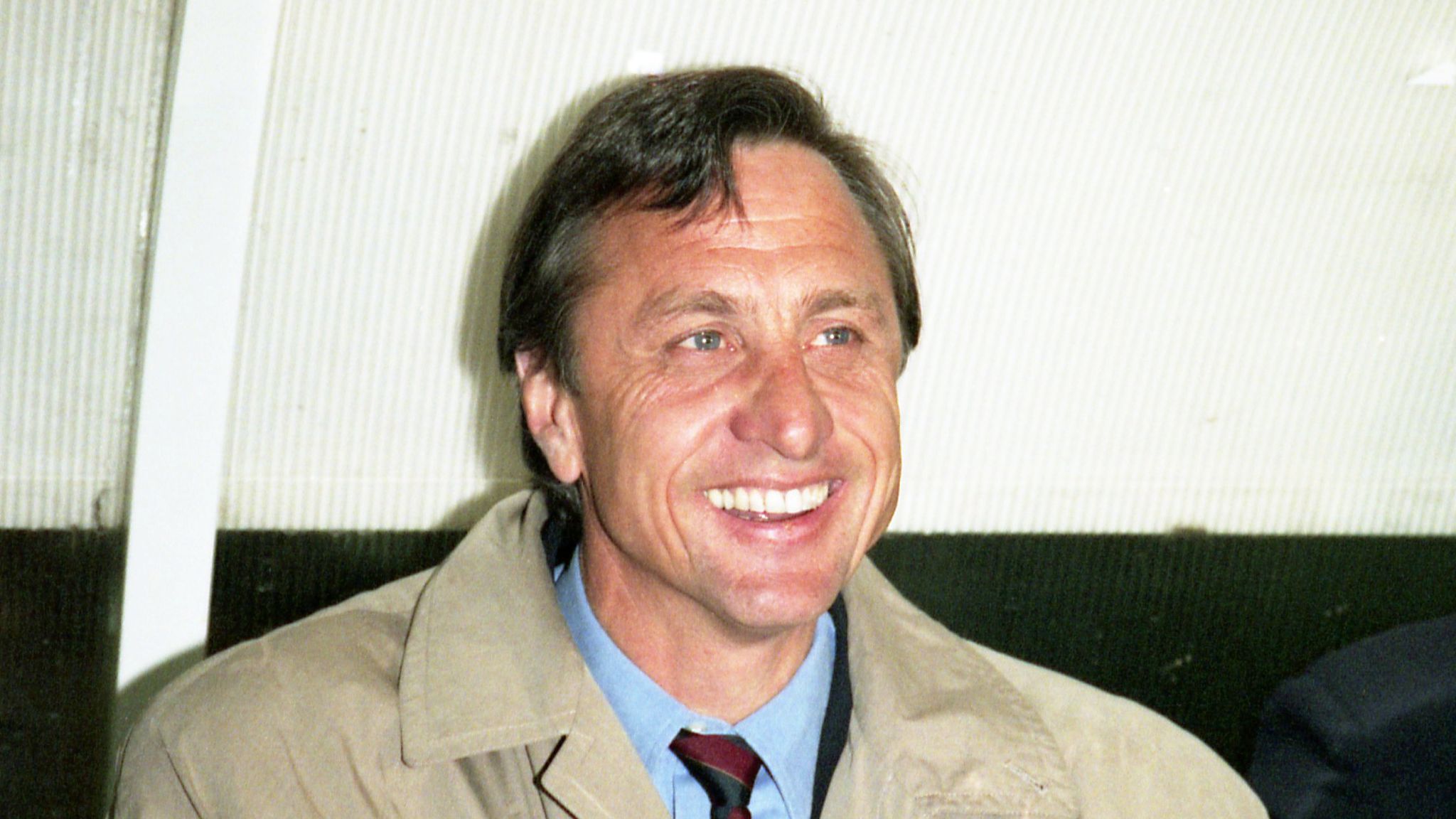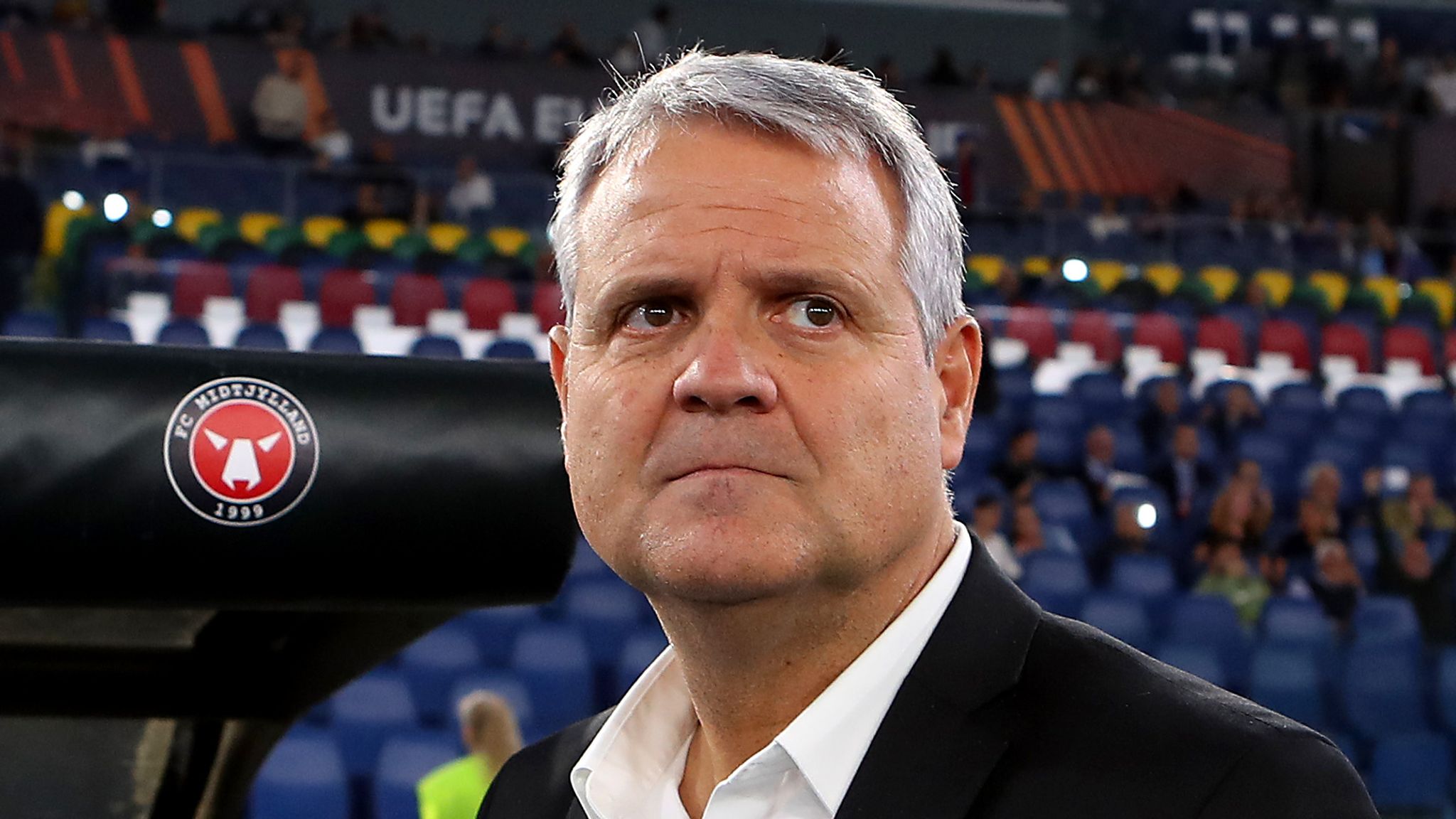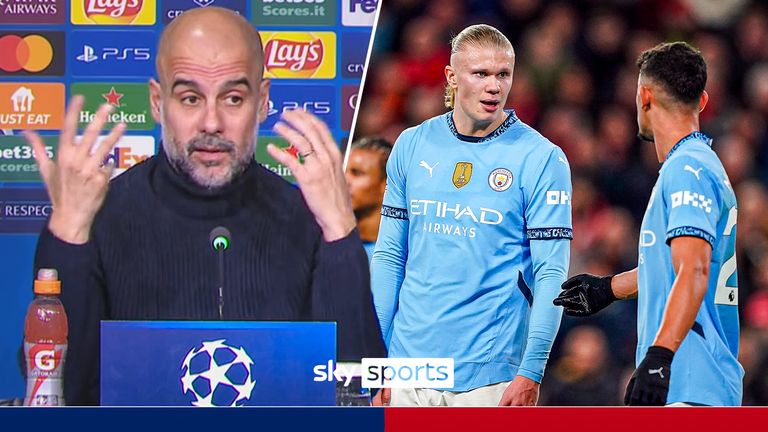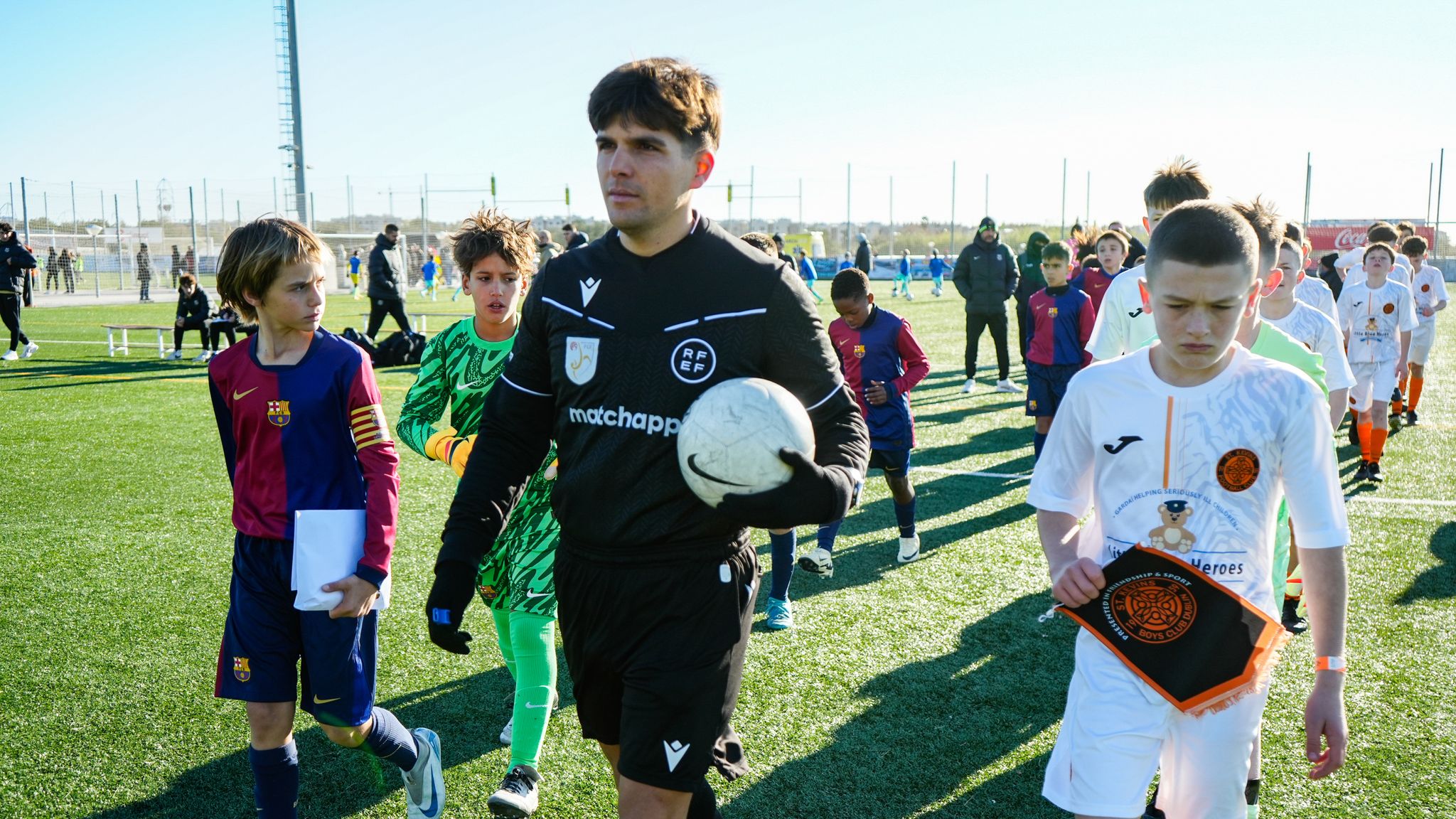A new youth football tournament was launched at the weekend. The Cruyff Football Tournament featured over 90 teams and 1600 young players from around the world. It is the brainchild of Jordi Cruyff, who wants to ensure his father Johan’s spirit lives on.
Jordi was overseeing events in the Catalonian coastal resort of Salou, joined by former Barcelona and Ajax players Roger Garcia and Isaac Cuenca. Naturally, the two clubs were represented at the tournament. It was impossible to imagine it without them.
“If the name of Johan Cruyff is on the tournament, we could not do it without Barcelona and Ajax. Both said yes immediately,” Albert Capellas, general manager of Cruyff Football, tells Sky Sports. There was a third team that had to be there too.
“Pep Guardiola is the coach most representative of Cruyff so the next team had to be Manchester City.” It is a reminder that Cruyff’s ideas about the game, position and possession, continue to resonate today. “It is his indirect influence,” says Capellas.
“His former players recognise him as the best mentor they ever had. Still, he impacts the way the game is played. Now, if you watch English football, every time you see an English team trying to play from the game, this is the impact of Guardiola and of Cruyff.
“It is the same with Spain. The national team was all about fighting, about duels [in the early 1980s]. La Furia Espanola. After Johan, everything changed. We started to give value to the technical players, those who could think quickly and move the ball fast.
“That had a big impact on the national team. Now, Spain try to build the game, try to play in the opposite half, when they lose the ball they press high, all these concepts were from the Johan Cruyff era. He did not only change football in Catalonia.”
Even so, it was that region of Iberia that was the natural home for the first Cruyff Football Tournament. It is there, almost as much as his native Netherlands, the home of Total Football, that Cruyff’s principles are most keenly felt. He transformed Barcelona.
Initially, during his time as a player. More significantly, as a coach. “He was at Barcelona for eight years and all the academy teams trained and played in exactly the same way. But he was not going to those teams and telling them how to play. It was the opposite.
“All the coaches thought he was so amazing, they wanted to do it. Sometimes he would watch Barcelona’s B team. He would go to the coach of the U17s or the U10s and tell them they were doing a fantastic job. Barcelona tried to follow his ideas.
“I was with Hristo Stoichkov two weeks ago. He was saying there is no money in the world that would be able to replace what he learned from Johan Cruyff. He said he impacted him from day one and he never could have won the Ballon d’Or without him.
“I think it was at the last Ballon d’Or ceremony, they made an announcement saying that Johan Cruyff was the inventor of modern football. I really think he was the man who showed us the way modern football has to be played. He was doing it many years ago.”
With that in mind, it was a conversation with Jordi that sparked this. “He had this vision that through Cruyff Football we could write down all this knowledge, explain it to the football community. Jordi said to me, ‘Please, Albert, we have to do this.'”
Through Cruyff Football, Capellas, a former academy director at Barcelona, leads the coaching certificates and has helped create an app so that coaches can prepare their sessions aligned with those ideas that were espoused by Cruyff himself.
“We want to ensure that this knowledge of Johan Cruyff stays around forever. We cannot lose this. The way he trained, the positional games, the small-sided games, his whole way of thinking about football. Every one of us has the responsibility to share this.”
All of which raises an obvious question. If Cruyff’s ideas are so pervasive, if the tentacles of his influence live on in the Premier League champions and the winners of last summer’s European Championship, why worry about his legacy being lost?
Capellas, a former academy director at Barcelona, watched “hundreds and hundreds” of Cruyff’s sessions. “They would last under an hour but were high intensity. Just by listening to the sound of the ball, you would know if the positional game was working.”
For him, someone who grew up as a coach watching Cruyff work with Stoichkov, Romario and Michael Laudrup, there is a determination that Cruyff’s ideas about football are not only remembered and studied – but not misunderstood by critics either.
“You see a lot of coaches saying you cannot limit the touches, you have to give players freedom otherwise you lose the creativity. Johan was saying the absolute opposite. If you need three touches, that is bad. Two touches is good. One touch is fantastic.
“The concept is that the ball never gets tired. Move it fast to frustrate the opponent, force them to run and sooner or later they will lose concentration and the gap will appear. Top players recognise when to change the rhythm, when to use their skill.
“But Johan Cruyff was not a coach who limited the touches in the last third because this is when the creativity comes, when the real player expresses themselves, whether that is Romario or Stoichkov. It was about teaching players when you can take a risk.
“He was not saying you cannot dribble. When you see Michael Laudrup on the right wing, in the No 7 position, in a situation where he is one-against-one, go away. Give him as much space as possible. Let him wait in that position. The ball will come.
“Before people criticise one and two touch, they should know that there was a lot of room for players to show their creativity within his idea of football. It was not a system that cut out that creativity. Johan always really loved players with top quality.”
The hope is that he would have enjoyed this tournament, one that featured some of the more famous names in European football, Atletico Madrid and Inter included, but also showcased some of the best young talent from the region of Catalonia as well.
“We wanted local teams. A chance to prove themselves, show their skills against the future stars of world football. The players go to the resort, they share knowledge, friendship and football. It is not just about the games, it is about the experience.”
All the matches have been recorded so that individual analysis of the players can not only be done but accessed by them for free in the app. “They can see their statistics, a chance to be scouted.” This is for fun but it is also a tournament with big ambitions.
The intention is for it to become “a reference point” for other youth tournaments around the world in the future. Expansion plans are already afoot with the concept of feeder tournaments in Ireland, Sweden and China – the winners competing in Catalonia.
“It is the best way to honour Johan Cruyff. He looked for perfection. We must do the same. This is just the beginning. Football brings religions and societies together. There is nothing more powerful. And yes, I expect Barcelona and Ajax will always be there.”
Source : Sky Sports



